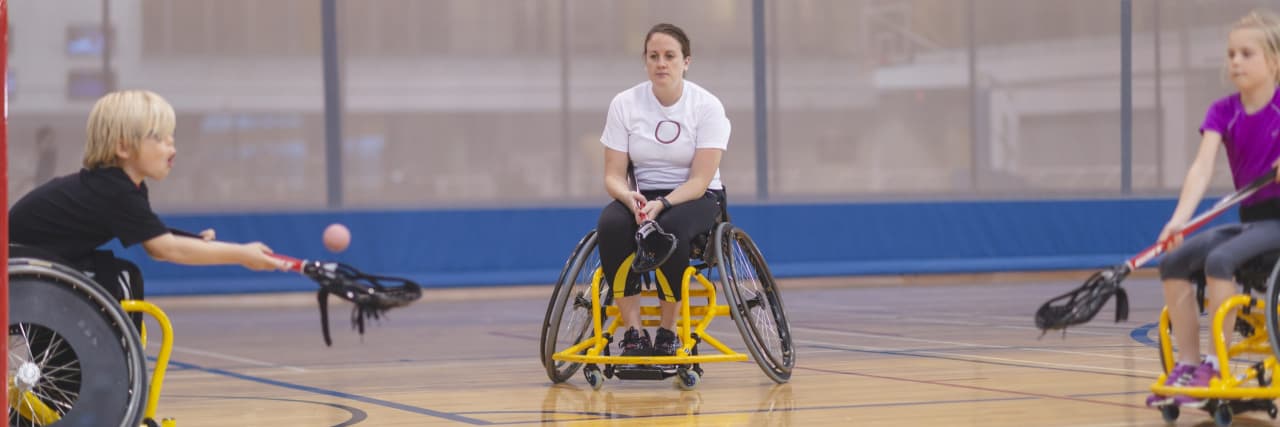This past weekend, I flew out to Colorado for the Wheelchair Lacrosse Nationals tournament. While it was an overall great weekend and our team came in second out of the nine teams there, one comment made by an opposing team still leaves a bitter taste in my mouth.
At one point during a game, a comment made from the opposing team to my able-bodied coach left my coach rattled. The comment was about letting disabled athletes play instead of able-bodied athletes because it’s an adaptive sport.
I know I’m not the strongest player on my team. I told my coach before the tournament that I’d rather win than have a ton of playing time. I am OK with my current role on the team being to help the more advanced players on our team practice, and to give them breaks during the game as needed. It is only my first year on the team and I know I have lots of room for growth.
The rule book for wheelchair lacrosse states that each team is allowed to have up to three able-bodied athletes play at a time. While this may be due to the fact that wheelchair lacrosse is still a relatively new sport and more athletes are needed in general to have full teams, I believe that in the long term, even when more disabled athletes decide to play, able-bodied athletes still should be allowed to play the game.
Why is that? While I know I may not hold the popular opinion on this one, hear me out. My belief is that a) disability is a grey zone and not black and white, and b) separating able-bodied athletes from disabled athletes completely in adaptive sports further stigmatizes and puts disabled people in an “other” category than able-bodied athletes.
In other adaptive sports, such as wheelchair rugby and wheelchair basketball, each athlete is assigned a point value based on their physical abilities and each team is only allowed to have a certain number of points on the court at a time. The more “able” the player is, the higher their point classification. This allows for more even matchups while still allowing everyone to play.
Each sport has different requirements to be classified based on ability. Wheelchair rugby is much more strict on who can play, mostly limiting it to people who are quadriplegic. Wheelchair basketball, on the other hand, allows much more variety for players’ abilities. For instance, someone may be allowed to be classified in wheelchair basketball solely for having flat feet.
With that in mind, what’s the harm in letting able-bodied athletes play adaptive sports? Currently, wheelchair lacrosse doesn’t have a point classification system, solely the three able-bodied athlete limit. However, perhaps in the future, a classification system should be implemented to ensure the matchups are even while still allowing able-bodied athletes to play. In my mind, what’s the harm in giving able-bodied athletes a very high point classification that would count towards the total point limit of the players actively playing the game at each moment?
I would love to continue playing adaptive sports with able-bodied athletes. This allows athletes of all abilities to break down barriers and learn from each other. Allowing able-bodied athletes to play adaptive sports shows them that disabled athletes are just as valuable as able-bodied athletes.
Since the wheelchair lacrosse season has ended, it’s time for me to switch gears to my winter adaptive sports (sled hockey, and practicing with the wheelchair rugby team), but I look forward to restarting wheelchair lacrosse in the spring!`
Getty image by FatCamera.

